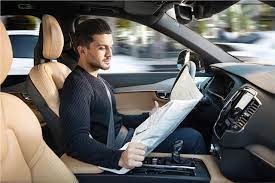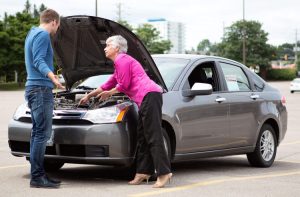
Autonomous driving does not mean that you can check your email or eat your burger while the car drives. It is more about the increased safety quotient offered by driverless technologies.
It is estimated that around 90 per cent of vehicle accidents are caused by human error. The recent fatal Tesla Model S accident adds another dimension to the debate about autonomous vehicles. Nearly every global OEM, as well as some Chinese OEMs, are working on this technology.
A 40-year-old man lost his life in the Model S accident in Williston, Florida. The car collided with a tractor-trailer. During the accident, Autopilot was activated. The brakes weren’t applied because “neither Autopilot nor the driver noticed” the white side of the tractor-trailer in the brightly lit sky. Is it technology’s fault for not being able to distinguish the trailer’s white side from the bright sky? Or was there a fatal delay in human response to take control of the controls? The National Highway Traffic Safety Administration (NHTSA), USA, has investigated whether the driverless technology worked as expected.
Driverless technology is not yet available from all OEMs. Autopilot requires human involvement to drive Tesla’s Model S. Tesla claims that Autopilot is an assist feature that requires that you keep your hands on and control the steering wheel at all times. This technology is still in beta.
While NHTSA is investigating whether the Autopilot feature works as intended, it asks how the Model S runs under the trailer. To prevent such accidents, and under-run protection device exists. It is unclear if there was one, but the trailer’s height was too high. (Experts say that trailers used in off-road conditions like mines are exempt from having one fitted.
If the accident were due to technical problems, it would ensure that not only the vehicle OEMs but also manufacturers of electronics, radars and sensors, as well as cameras, work to develop capabilities to meet new challenges.
Tesla claims that the death at the hands of the Model S customer was the first fatality in more than 130 million miles since Autopilot was activated. There is no way to prove any technology is completely foolproof. However, companies developing autonomous driving technologies might add layers to the approval proce





